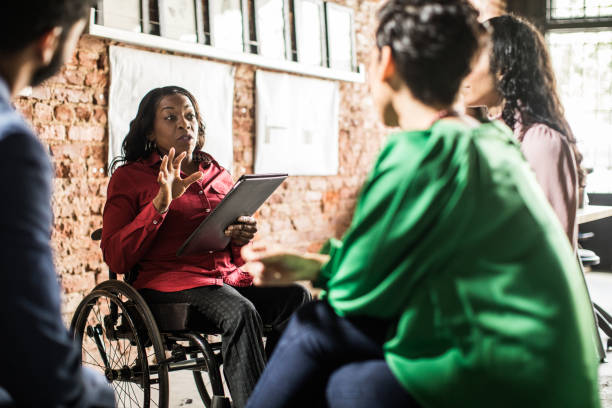Disability Rights: Advocacy and Activism
Disability rights have become a significant focus of advocacy and activism around the world. People with disabilities face numerous societal challenges, including discrimination and limited access to education, employment, healthcare, and other essential services. However, thanks to the relentless efforts of disability rights advocates and activists, there has been a growing recognition of the rights and inclusion of individuals with disabilities. This article explores the importance of disability rights advocacy and the role of activism in creating a more equitable and inclusive society.
Understanding Disability Rights:
Disability rights refer to the fundamental rights and protections that should be guaranteed to individuals with disabilities. These rights encompass various aspects of life, including equal access to education, employment, transportation, healthcare, public facilities, and participation in social and political activities. Disability rights are based on the principle of equality and non-discrimination, emphasizing that people with disabilities should have the same opportunities and choices as everyone else.
The Role of Advocacy
Disability rights advocacy plays a crucial role in promoting and protecting the rights of individuals with disabilities. Advocates work to raise awareness, challenge stereotypes, and fight against discriminatory practices. They engage in various activities such as lobbying, public speaking, organizing campaigns, and educating the public, policymakers, and institutions about the needs and rights of people with disabilities. Advocates strive to influence legislation and policies to ensure the implementation of disability-inclusive practices and accessibility standards.
1. Empowering Individuals with Disabilities:
Advocacy efforts aim to empower individuals with disabilities by giving them a voice and platform to express their needs and concerns. Self-advocacy is a vital aspect of disability rights activism, as it encourages individuals with disabilities to advocate for themselves and actively participate in decision-making processes that affect their lives. Through self-advocacy, individuals gain confidence, assertiveness, and a sense of ownership over their rights, fostering a more inclusive society.
2. Shaping Public Perception:
Disability rights advocates and activists work tirelessly to challenge misconceptions and stereotypes surrounding disabilities. Their efforts help shape public perception by highlighting the abilities and talents of individuals with disabilities, breaking down barriers, and promoting inclusivity. By sharing personal stories, organizing awareness campaigns, and promoting positive representation in the media, advocates contribute to changing societal attitudes and fostering a more accepting and inclusive environment.
3. Collaboration and Intersectionality:
Disability rights activism often intersects with other social justice movements, emphasizing the importance of collaboration and solidarity. Advocates recognize that disability rights cannot be achieved in isolation but require collaboration with other movements, such as gender equality, racial justice, LGBTQ+ rights, and economic justice. This intersectional approach helps address the unique challenges faced by individuals with disabilities from diverse backgrounds and promotes a more comprehensive and inclusive advocacy agenda.
4. Ensuring Accessibility and Inclusion:
One of the key objectives of disability rights advocacy is to ensure accessibility and inclusion across all aspects of society. This includes physical accessibility in buildings and public spaces and digital accessibility on websites, software, and other technological platforms. Advocates strive to promote universal design principles and advocate for reasonable accommodations to create an inclusive environment that allows people with disabilities to participate in all aspects of life fully.
Conclusion
Disability rights advocacy and activism are essential for fostering an inclusive society that respects and upholds the rights of individuals with disabilities. By challenging discriminatory practices, raising awareness, and promoting inclusivity, advocates and activists play a pivotal role in ensuring equal opportunities and a more accessible world for everyone. Continued efforts in disability rights advocacy are crucial to creating lasting change and building a society where individuals with disabilities can thrive and contribute their unique perspectives and talents.

